
MEMORY °
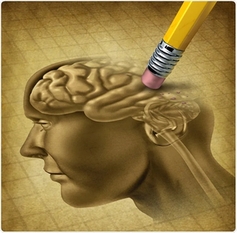
Our new page devoted entirely to this avalanche of new research & ideas.
* Camembert. 
* Memory loss v. dementia. Distinguishing.
* Falls linked with increased chance of dementia.
* New one. Not Alzheimer, not Parkinson. Named LATE and very common. But: "If LATE is indeed as common as this research suggests, it may be necessary to develop new diagnostic tools to identify it in living patients and explore targeted therapies that can prevent or slow the buildup of TDP-43 protein in the brain. Moreover, the high prevalence of LATE in this population underscores the need for a more holistic approach to brain health in old age. Rather than focusing on a single disease like Alzheimer’s, future strategies may need to address multiple aspects of brain aging simultaneously to effectively combat cognitive decline."
* Let's realize first. “Around a generation ago, we assumed that when we get older, we dramatically lose our memory. That's really not the case.” The brain’s gradual, slow decline is really gradual, really slow, and really shallow. During healthy aging, volume and number of neurons in the brain decrease, as does the amount of insulation around them, called myelin. As we become more, let’s say, sophisticated, our processing speed typically slows, but our decision-making is wiser and our loss of memory power is subtle." Sharon Sha, clinical professor of neurology & neurological sciences, Stanford.
* Delay Alzheimer with newly discovered nasal spray, for up to a decade.
.
* Combat Alzheimer with Blueberries!

* Combat Alzheimer with Espressos!

* Blood test dementia risk.

* Combat dementia with music!"Powerful!"

* Combat Alzheimer with
[Real] Wasabi !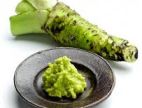
* New study, 11 factors key to reducing dementia risk by 40%. (2023)
* Curiosity: Thought Exercises.
* 6 ways to slow memory decline.
* Deep sleep fights memory decline.
* Curable form of dementia.
* Youngest case ever reported. Age 19.
* Stroke recovery
* Your memory HIV drug helps.
* Also, Walk backwards-1 & Backwards-2.
* Keep your brain active! Active.
* Seafood for brain Sea.
* Benefits of Choline.
- Here's a good overall intro/summary.
* Parkinson rates are exploding.
Chemical may be to blame. (Avoid the dry cleaner).
But there's also good Parkinson news:
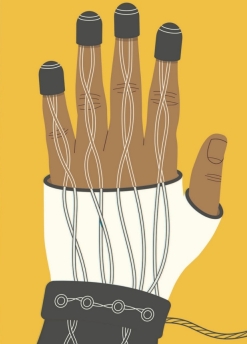
- A new idea from Stanford -- a vibrating glove worn 2 hours twice a day.
More here.
- New theory: Gut microbiome.
* Big advance - Parkinson. Deep brain stimulation personalized.
* Parkinson's 500% danger! TCE in cleaning wipes!
Just in: B2(cheese) & B7(greens).
More:
Foods (Chicago study/U Illinois starring roles)
TEDx talk video.
Music/Vibration therapy
TEDx talk video. Sound at a cellular level.
Ibuprofen
Paper suggests daily dose of ibuprofen could help prevent Alzheimer’s disease. (2018)
But another study found it does not slow cognitive decline.
To help prevent cognitive decline
Neuroscientists snack on: Blueberries, Walnuts, Almonds, Wasabi, Kale chips, Smoked salmon, Sardines. (2023)
° DRAMATIC RESEARCH °
* Alzheimer. Two totally new weapons:
* Totally new thinking:
- Not a brain disease!
- Dysfunctional mitochondria (energy factories in every brain cell).
- Bacterial infection (likely from mouth).
- Metals (abnormal handling of metals within brain).
* New cancer inhibitor drugs:
act against Alzheimer.
* Alzheimer < > viruses.
500k med records.
* New approach to tradtional enemy: toxic protein clumps. New theory
about this enemy:
PLD3 Lysosomes Axons.
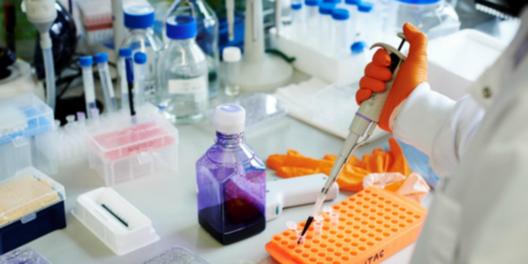
A way forward. Long-term memory discovery.
Brand new drug approvals, lecanemab and aducanumab,
have received much attention, but one source (newscientist.com - subscription required) wrote recently: "FOR the first time in nearly two decades, a new treatment for Alzheimer’s disease was approved by the US Food and Drug Administration in June. But instead
of joy and relief, the announcement was largely met with frustration and even anger."
Even newer
donanemab, on verge of approval summer 2023, may hold even greater potential. Donanemab 7-2023.
Drug Screening Research: Oxford.
Key area of research:
gut-microbiome (2023).
Further proof gut health is key: based on studies
using identical twins over age 60, one of whom got a cheap supplement, inulin, found in chicory, or FOS,mainly used as low-cal sweetner
(pre-and-probiotics),
significantly improved cognitive results compared to other twin (2024).
Giving people functions back: Dementia et al.
* Another new theory: Breakthrough?
"Our unusual tale begins with ethnobotany: the study of the way indigenous people use plants in their customs and diet. You see, Cox is an ethnobotanist, and a darn good one by all accounts. “You’d enjoy walking through a jungle with me,” he once told me."
"Chamorro were up to 100 times as likely as people elsewhere in the world to develop symptoms often associated with neurodegenerative diseases like ALS, Alzheimer’s, and Parkinson’s: slurred speech, facial paralysis, loss of motor skills, immobility and dementia. Believing that this cluster might hold essential clues to neurodegeneration, scientists advanced several theories. Some targeted a toxin found in the seeds of local cycad trees. Called BMAA, it killed nerve cells in lab tests and induced symptoms of lytico-bodig when fed to monkeys."


* Tohoku University study links dental hygiene to Alzheimer.

More generally:
* New way to slow aging: transposable elements.
° AND HEARING LOSS
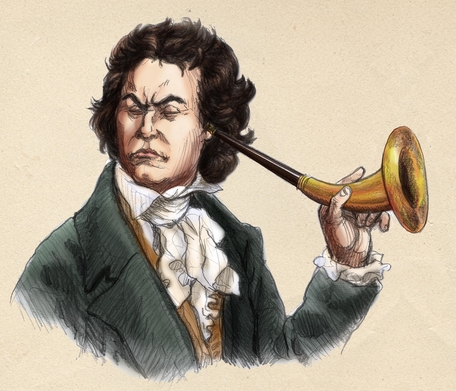
If only Beethoven had had what we have today!
Experiences. Related to Alzheimer -- plus new research connecting the two.
Starting with this from Jim Lewis:
"I thought this article on the benefits of using hearing aids might be of interest
to our classmates.
For many years I knew my hearing was in decline, but did not immediately address this issue.
However, for the past 6 or 7 years I have daily used hearing aids. I am personally convinced that the benefits far outweigh any financial cost or
social stigma from wearing them. Even at our age there is a good payoff.
And, as the article indicates, in addition to hearing better, there are seemingly other major health benefits, such as lessening the risk of dementia.
The Lancet is an excellent medical research journal.
'Better late than never' has a good 'ring' to it!
Best, Jim"
Here is another very recent article from the Washington Post reporting on these new
findings.
Send in your experience if you think it's of interest to our class.
And here is another, earlier article intelligently arguing "Hearing loss is the largest modifiable risk factor for developing dementia, exceeding that of smoking,
high blood pressure, lack of exercise and social isolation." Hearing and Alzheimer.
PS. Jim adds: "I also think that our children, now in their 40s and 50s, be made aware of hearing loss issues, get tested, and premptively deal with any issues,
thus reducing the risk of other more serious health issues later in life."

Improving hearing in a general way:
Diet helps
[ Back to Top ]
"I thought this article on the benefits of using hearing aids might be of interest to our classmates.
For many years I knew my hearing was in decline, but did not immediately address this issue.
However, for the past 6 or 7 years I have daily used hearing aids. I am personally convinced that the benefits far outweigh any financial cost or social stigma from wearing them. Even at our age there is a good payoff.
And, as the article indicates, in addition to hearing better, there are seemingly other major health benefits, such as lessening the risk of dementia.
The Lancet is an excellent medical research journal.
'Better late than never' has a good 'ring' to it!
Best, Jim"
Here is another very recent article from the Washington Post reporting on these new findings.
Send in your experience if you think it's of interest to our class.
And here is another, earlier article intelligently arguing "Hearing loss is the largest modifiable risk factor for developing dementia, exceeding that of smoking, high blood pressure, lack of exercise and social isolation." Hearing and Alzheimer.
PS. Jim adds: "I also think that our children, now in their 40s and 50s, be made aware of hearing loss issues, get tested, and premptively deal with any issues, thus reducing the risk of other more serious health issues later in life."






